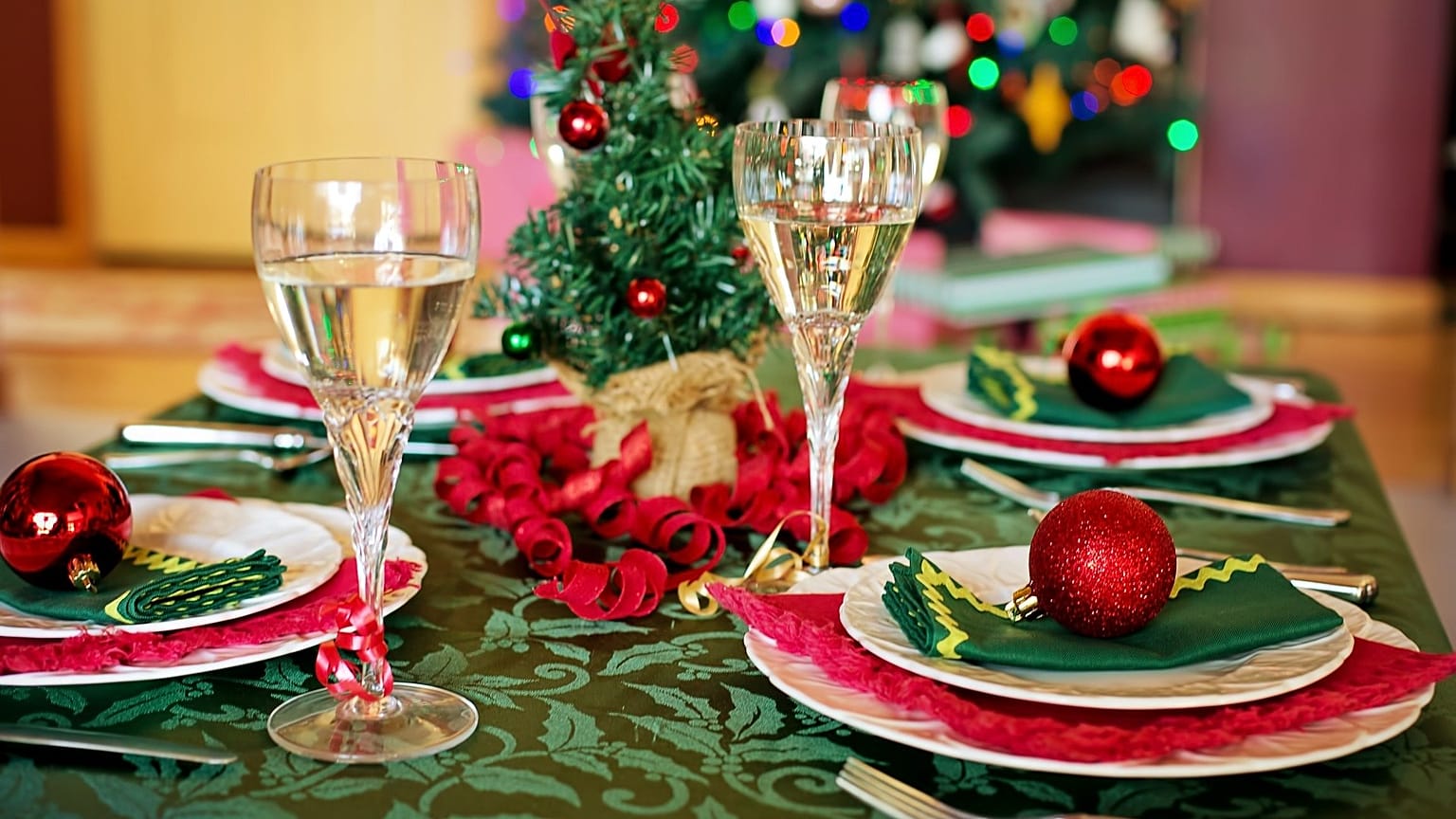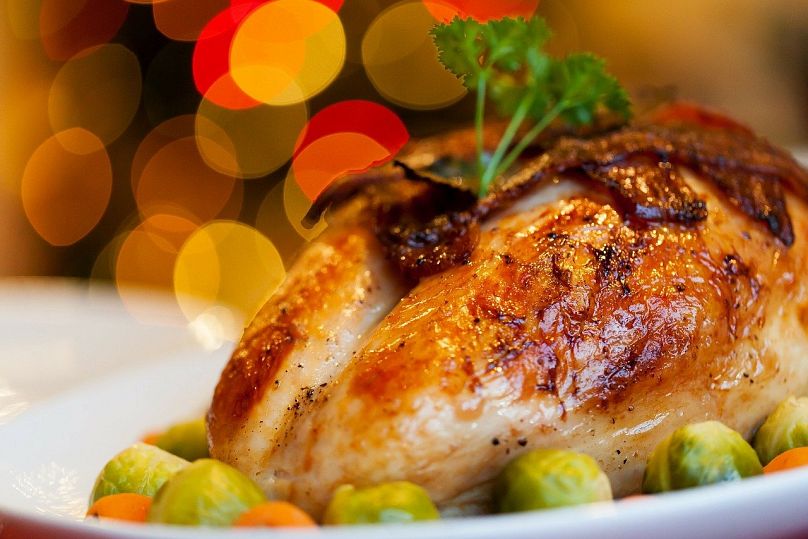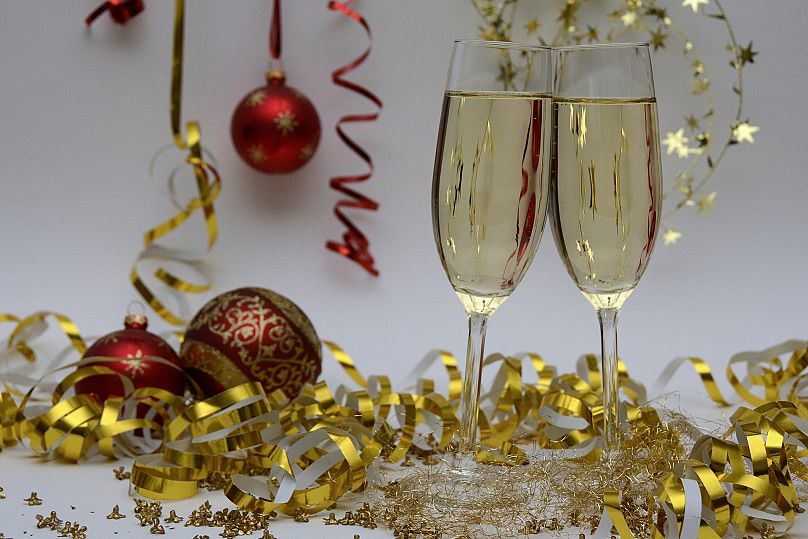A no deal Brexit could have severely affected some, but not all, of Britain's Christmas favourites in 2021.
Christmas to many British families means a table groaning with a customary spread and a day accented by drinks and tradition.
 ADVERTISEMENT
ADVERTISEMENT
 ADVERTISEMENT
ADVERTISEMENT
But as Britain is a country that depends massively on food imports, especially from the European Union, the Brexit process meant there was a real risk of next year's festivities being quite different.
Until this week, that is.
The UK-EU free trade agreement bodes well for 2021's festive treats, although not every element is secure yet: Britain has no new deal in place yet with China, a major source of goods.
We take look at the element of a British Christmas and how a no deal Brexit could have affected the overall price tag of festivities.
First things first, the roast
Britons could sleep easier knowing the central culinary component of their day, a roast dinner, was never going to disappear from tables in 2021 whatever happened.
The use of turkey as a key part of a Christmas feast dates back centuries.
Most of the birds that families eat on December 25th, including turkeys, chickens, geese and ducks, are produced in the UK, meaning they will not be subject to post-Brexit customs, tariffs or supply issues linked to being imported.
But that's not to say there aren't Brexit-related factors that could have changed things.
Farmers rely heavily on workers from the EU, so much so that the British Poultry Council (BPC), an industry body, said the UK was this year 1,000 workers short due to COVID-19 travel restrictions and could reach a breaking point.
Access to these workers for UK employers will be via a points-based system from next year — a measure that will affect turkey producers — and therefore the price of their birds, should they pass this on to consumers.
Brussels sprouts controversies
When considering other parts of the slap-up main of a Christmas dinner, it’s important to keep in mind that the UK supplies less than 20% of its own fruit and around 50% of its vegetables.
These imports from the bloc are currently tariff-free, but if there's no deal, the fees on fresh food in particular, are set to be pretty high.
It will be up to the likes of retailers to see how they want to deal with these increases and other import costs by absorbing them, increasing prices for shoppers or changing suppliers.
While Brussels will continue to make an appearance in the divisive form of sprouts — an area equal to over 3,200 football pitches in the UK is covered with the crops — many British-consumed veggies are imported from EU member states.
Even vegetables that are grown in the UK could be affected, warns James Kane, an associate working on trade policy at the Institute for Government: “The idea that you are food secure, just because the final stage happened to take place in the UK is absurd.”
“You might think your apple is from the UK, but it was grown using a fertiliser that was produced in Germany … and it was picked by someone from Slovenia,” he explained.
What's more, Kane says, the factor that will have the biggest affect the cost of Christmas goodies for Britons is exchange rates, or how much the pound is worth compared to the euro and other currencies.
In the event of no deal, there could plausibly have been "very significant falls in the exchange rate," he said, adding that a fall of 50% in the exchange rate would be likely to produce an increase of around 20% in price levels.
No deal yet for China
Christmas crackers form part of a traditional table setup, but a lot of the UK's top retailers stock products that are produced in China, along with other festive essentials including the contents of stockings, such as children's toys.
In fact, China stands alongside EU countries as one of the UK's top import partners.
EU trade agreements with countries outside the bloc continue to apply to the UK until December 31, but Britain will have to go it alone after this date and does not currently have a deal with China, leaving a question mark over the price of importing these goods.
However, Kane says there will be "very little change" on the price of items from the likes of China. Some products might even get a little cheaper due to the removal of tariffs.
Indeed, it's not all bad news and potential price hikes, as the UK is set to lower tariffs on some commodities in the event a deal is not reached; if you were planning ahead and saving up to give a bike as a present in 2021, you could be in luck.
Christmas lights and Christmas stollen will also see tariffs slashed in this scenario, while the fee for importing Christmas trees to the UK will be cut to 0% regardless of where they are from.
What about the booze?
Christmas drinks are an integral part of the festive period for many and some families have their own favourites when it comes to yuletide tipples.
Indeed, 16th-century English poem describes a Christmas spread containing: "Beefe, mutton, and porke, shred pies of the best, pig, veal, goose and capon, and turkey well drest” along with "good drink".
If you were thinking about kicking off the day with a glass of Bucks Fizz, an alcoholic cocktail made of champagne and orange juice in 2021, you may still be in luck.
Strict EU rules mean the fizzy stuff can only wear the name Champagne if it has been produced in the Champagne region in France, and this looks set to stay in place after the UK's exit.
But Britain is Champagne’s largest export market, ahead of even the United States, and some Champagne exporters have reassured consumers that they have stockpiled cases to prevent any shortages. Moet and Chandon, for example, don't have any storage issues. Their cellars comprise a staggering 28km of underground tunnels, the oldest of which dates back to 1743, when the house was founded.
Kane says that customs costs in the event of a no-deal could have led to a small rise in the price of champagne or alcoholic beverages, but this would likely have been negligible compared to the overall cost of the bottle: tariffs could see around 12 pence (13 euro cents) added per bottle.
On the other hand, fizz-lovers could have looked to British sparkling wines, with bubbles from Kent, Sussex and Hampshire recently beating French powerhouses such as the aforementioned Moet et Chandon and Veuve Clicquot in blind taste tests.
Sherry, which is produced in Spain, along with wine (Italy and France are where the UK imports most from) could also cost you slightly extra, but it might not surprise you to find out many varieties of gin, on the other hand, are produced in the UK.
What people in the UK will easily be able to get their hands on in the festive period in 2021 and how much items will cost may still be partially up in the air even after the Christmas Eve trade breakthrough, but one thing is certain — Christmas spirit isn't a commodity Britons will need to import.
















